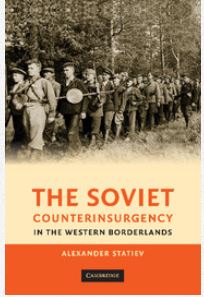The Soviet Counterinsurgency in the Western Borderlands
First published in 2010, The Soviet Counterinsurgency in the Western Borderlands investigates the Soviet response to nationalist insurgencies that occurred between 1944 and 1953 in the regions the Soviet Union annexed after the Nazi-Soviet pact: Eastern Poland, Lithuania, Latvia, and Estonia. Based on new archival data, Alexander Statiev presents the first comprehensive study of Soviet counterinsurgency that ties together the security tools and populist policies intended to attract the local populations. The book traces the origins of the Soviet pacification doctrine and then presents a comparative analysis of the rural societies in Eastern Poland and the Baltic States on the eve of the Soviet invasion. This analysis is followed by a description of the anti-communist resistance movements. Subsequently, the author shows how ideology affected the Soviet pacification doctrine and examines the major means to enforce the doctrine: agrarian reforms, deportations, amnesties, informant networks, covert operations, and local militias.
Alexander Statiev is Assistant Professor at the University of Waterloo, Canada. He has published articles in the Journal of Military History, Kritika, War in History, the Journal of Strategic Studies, the Journal of Genocide Research, and the Journal of Slavic Military Studies. Professor Statiev’s teachings focus on Russian and East European history.













